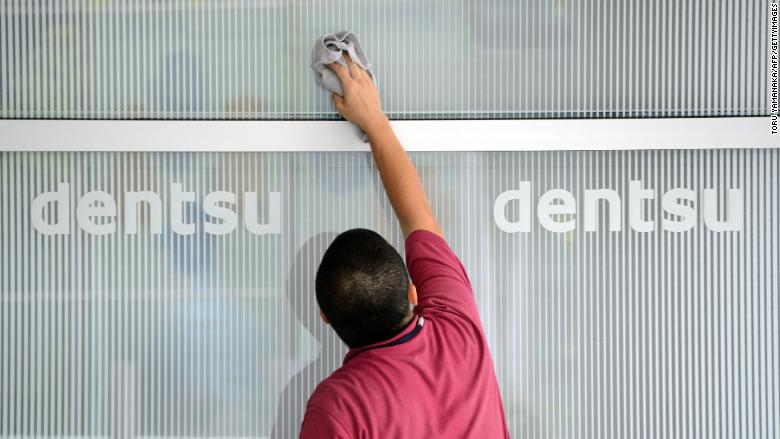
One of Japan's top ad agencies plans to pay millions of dollars to its workers for unpaid overtime.
The company, Dentsu, became the focus of international attention after Japanese authorities said last year that the suicide of one of its employees was caused by overwork. Since the outcry over that case, Dentsu has been trying to improve life for its workers and repair its reputation.
One of its latest moves is to set aside 2.4 billion Japanese yen (more than $21 million) to compensate employees for any "unregistered time" they've worked over the past two years, the company said.
The decision was made after employees were asked in a survey to discuss their working hours from April 2015 to March 2017, a spokesman said Wednesday. Although it's common in Japan for employees to clock their hours, Dentsu staffers would previously write off some of their overtime as personal development tasks or "self-training" for which they wouldn't be paid, he said.
Related: Japanese reporter died after clocking 159 hours of overtime
The company declined to say how many employees were owed money.
Japan is known for a stringent work culture with demanding hours and a deference to the company. A government study published last year found that one in five workers is at risk of working themselves to death.
The country has even coined a term for the problem: karoshi means death by overwork from stress-induced illnesses or severe depression.
Matsuri Takahashi, the 24-year-old Dentsu employee who killed herself, had worked about 105 hours of overtime the month before her death in late 2015, according to authorities. The uproar over the circumstances of her death led Dentsu's president and CEO to step down earlier this year.
Related: CEO resigns after overworked employee commits suicide
The reckoning has also prompted corporate Japan to try to promote a better sense of work-life balance. Some companies have started to adopt a four-day work week, and the government has launched a campaign called "Premium Friday," which encourages workers to leave early every last Friday of the month.
After Takahashi's suicide, Dentsu was charged with violating Japan's labor laws, and it lowered the maximum amount of overtime allowed to 65 hours a month.
In a plan released this summer, the agency promised to create "a new Dentsu," acknowledging a "lack of consideration for employees' well-being" and an "excessive disciplinary code."

